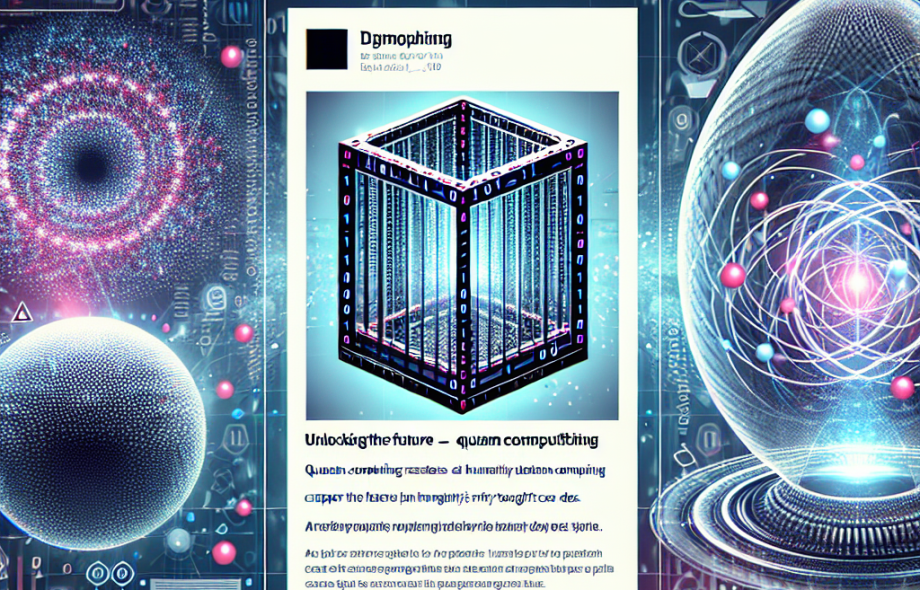In the realm of technology, quantum computing has emerged as a revolutionary breakthrough that has the potential to unlock capabilities previously thought to be impossible. One of the most intriguing applications of quantum computing is its ability to crack humanity’s toughest codes, posing both promising opportunities and significant risks.
Traditional computers operate using bits, represented as 0s and 1s, to process information. Quantum computers, on the other hand, utilize quantum bits or qubits, which can exist in multiple states simultaneously due to the principles of quantum mechanics. This parallel processing enables quantum computers to solve complex problems much faster than classical computers, making them ideal for breaking encryption codes that protect sensitive data.
With the rise of quantum computing, the security of current encryption methods is being called into question. Many encryption algorithms rely on the difficulty of factoring large numbers for their security. However, quantum computers have the potential to factorize large numbers exponentially faster than classical computers through algorithms like Shor’s algorithm, posing a threat to the security of encrypted data.
Despite the risks posed by quantum computing to encryption methods, there are also opportunities for enhancing cybersecurity. Quantum-resistant algorithms are being developed to withstand attacks from quantum computers, ensuring the security of sensitive information in a post-quantum world. Additionally, quantum key distribution offers a secure way to transmit encryption keys using quantum properties, safeguarding communication channels from eavesdroppers.
The race to harness the power of quantum computing in cracking codes is not without its challenges. Building and maintaining stable qubits, error correction, and scalability are just a few of the obstacles that researchers and developers are working to overcome. However, the potential benefits of quantum computing in revolutionizing cryptography and cybersecurity make these challenges worth tackling.
As quantum computing continues to advance, it is crucial for governments, organizations, and individuals to stay informed about the implications of this transformative technology. Proactive measures, such as transitioning to quantum-resistant encryption methods and investing in quantum-safe cybersecurity solutions, will be essential to safeguarding sensitive data in the quantum computing era.
In conclusion, quantum computing’s ability to crack humanity’s toughest codes presents both risks and opportunities in the realm of cybersecurity. By staying ahead of the curve and adapting to the evolving landscape of quantum computing, we can harness its potential for innovation while ensuring the security of our digital infrastructure.
 :
https://www.pinterest.com/xceltec0192/
:
https://www.pinterest.com/xceltec0192/












